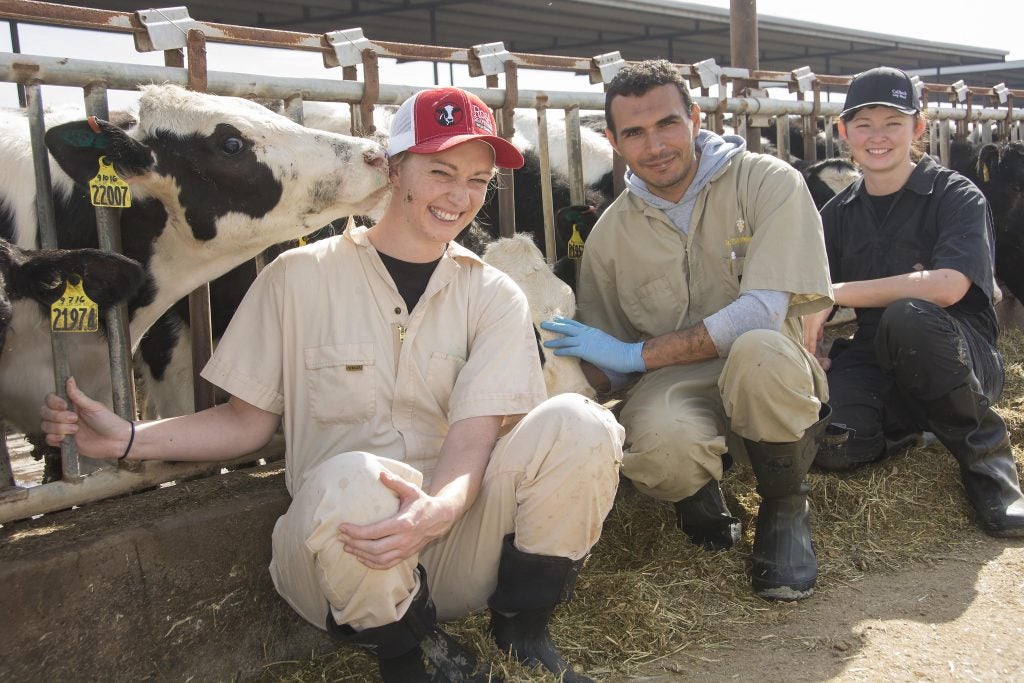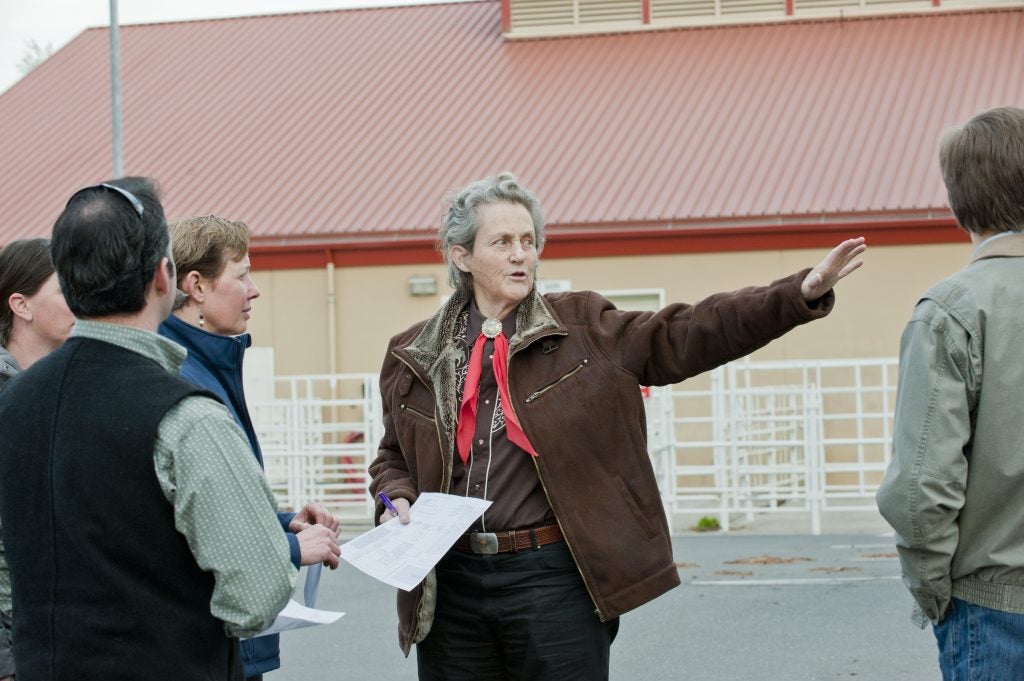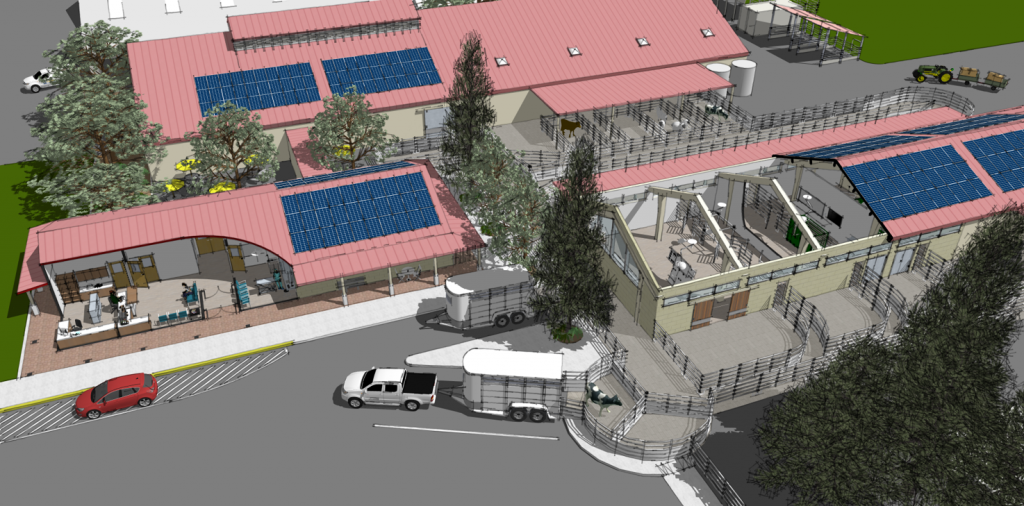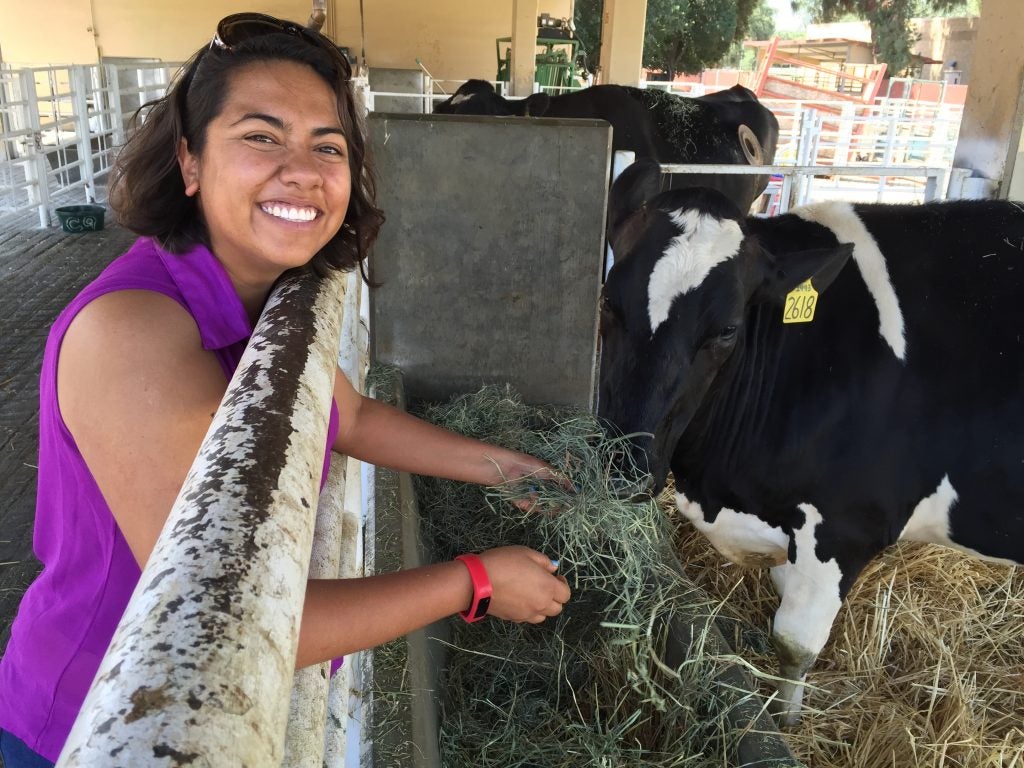“We know that a peaceful world cannot long exist, one-third rich and two-thirds hungry.” —Jimmy Carter

Earlier this year, fourth-year students Margaret Austin (left) and Hannah MacDonald received hands-on training at Tulare-area dairies under the guidance of Dr. Wagdy El-Ashmawy.
At UC Davis, we believe deeply in the interdependency of animals, people, and the planet we all share. It is with this core value that we look to the future. To feed a hungry world, we must train a veterinary workforce that is capable of addressing some daunting statistics. According to the 2017 report of the Food and Agriculture Organization (FAO), one of the greatest challenges the world faces is how to ensure that a growing global population – projected to rise to around 10 billion by 2050 – has enough food to meet their nutritional needs.
By 2050, food production needs are expected to increase by 50 percent. While global food security requires a complex series of approaches, it is clear that the production of healthy animal-sourced proteins will play a significant role in the solution.
We have come a long way since the inception of our school in the late 1940’s. Delivery of veterinary services and the education of veterinarians have significantly evolved over the past six decades. We are planning our Livestock and Field Services Center to meet these emerging needs of our regional clients and stakeholders, but also to train our students to be ready for the challenge of animal agriculture in all of its forms around the world.

Dr. Temple Grandin consulted with several faculty members on the design of the future Livestock and Field Service Center to provide the best possible environment for animal patients and those caring for them.
Upgrades and modifications to our current facilities are required to improve student and clinician safety and provide animal patients with outstanding veterinary care. Our curriculum is designed to provide veterinary students early exposure to animal agriculture in California and across the globe. Those students focused on a career in food animal practice gain critical experience in livestock surgery and medicine and food production systems during fourth-year clinical rotations, externships, club events, research projects, and international exchanges. For all of our students, understanding food systems and animal production for agriculture purposes provides them the foundation they need to be educated animal health professionals ready to contribute to the communities where they live and work.
As our students begin their careers, we want them to appreciate the value of their unique knowledge that has the potential to contribute to the survival of the planet. Veterinarians and scientists trained in agriculture and environmental sciences will be central to finding solutions to raising animals for food and fiber, while being good stewards of the land and water we all depend upon. They must work holistically to address animal welfare in communities widely disparate in resources. Our students will be required to work in transdisciplinary teams and respect cultural differences of those they serve. These differences may influence their attitudes about food and how it was produced.
Veterinarians and scientists who work to create a safe and abundant food supply may never meet those they help nourish. Their knowledge, skills, and innovations that create a safe food supply may not be in the consciousness of consumers as they purchase food. How often do we stop to appreciate those that help produce the food we eat? Despite this disconnect, those veterinarians and scientists that take on the challenge of serving society, by helping feed a hungry world, will be inherently rewarded in their soul. They are peacemakers of a different kind.


